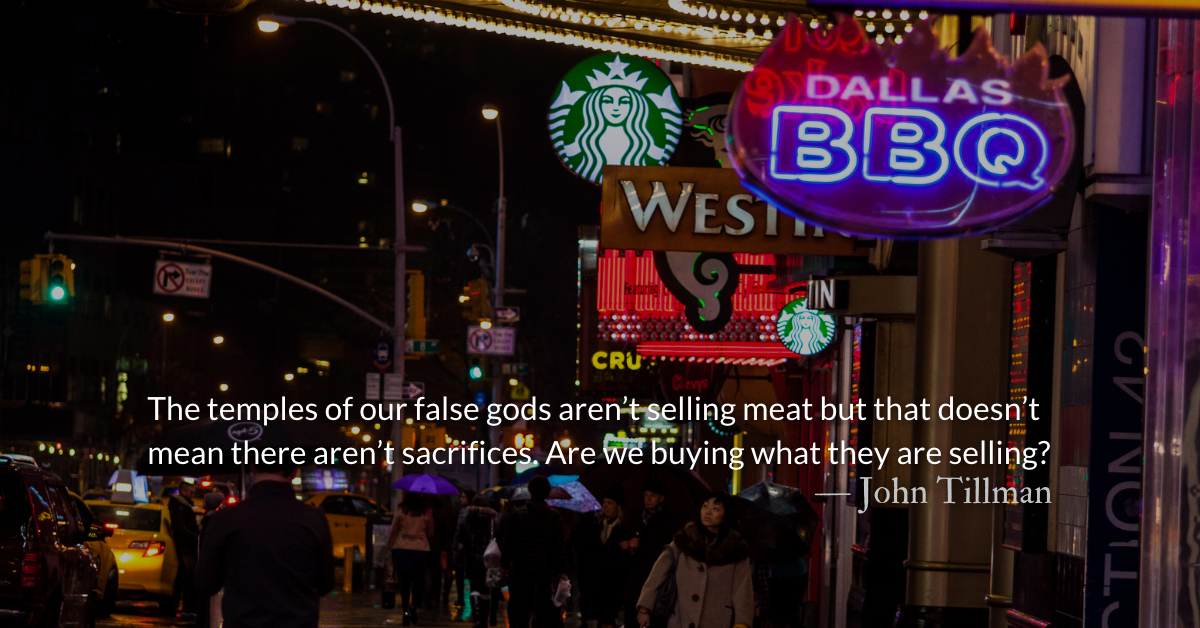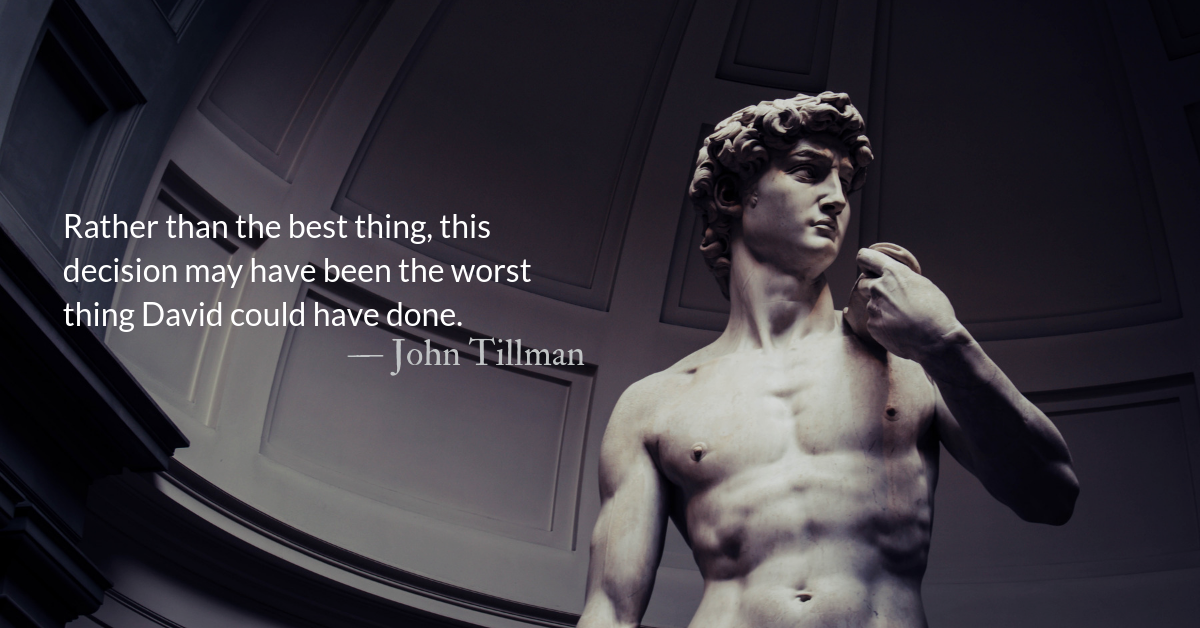Scripture Focus: 1 Corinthians 8.9-13
9 Be careful, however, that the exercise of your rights does not become a stumbling block to the weak. 10 For if someone with a weak conscience sees you, with all your knowledge, eating in an idol’s temple, won’t that person be emboldened to eat what is sacrificed to idols? 11 So this weak brother or sister, for whom Christ died, is destroyed by your knowledge. 12 When you sin against them in this way and wound their weak conscience, you sin against Christ. 13 Therefore, if what I eat causes my brother or sister to fall into sin, I will never eat meat again, so that I will not cause them to fall.
Reflection: Normalizing Idols
By John Tillman
The ancient world was filled with gods and temples. Sacrifices in these temples were often of food that would be sold in the marketplace or even served at banquets in the temples themselves. Scrupulous Jews went to extreme lengths to avoid even accidentally purchasing and eating meat that may have been sacrificed to an idol. (Acts 15.29)
But if idols are merely fake gods made from wood and stone by men and I serve the God of Heaven who made the wood, the stone, and the man, why should I worry? If their god isn’t real, there’s nothing wrong with the meat. If my God is real, all things are clean that he has called clean. (Acts 10.15) Why shouldn’t I eat?
What should we do when someone’s convictions about moral choices are more restrictive than our own? What should we do when our rights interfere with someone else? When we are enlightened and they are repressed, when we are right and they are wrong, why should we defer to them?
When speaking into such controversy, Paul began by saying, “…knowledge puffs up while love builds up.”
Knowledge is freedom. Knowledge is power. Freedom is often abused and can be deceptively destructive. Power is often abused and corrupts those who wield it. It should not surprise us then that knowledge can be abused.
The Corinthian’s knowledge was leading them toward pride and boasting. Paul pointed out the dark path their so-called enlightenment was leading towards. Their boldness and boasting would normalize something that could destroy others’ faith.
It might seem that we don’t have temples on every corner, sacrificing animals to false gods and selling meat. But the false gods in our culture don’t go by names like “Aphrodite,” whose temple was in Corinth, or “Artemis,” whose temple was in Ephesus. The temples of our false gods aren’t selling meat but that doesn’t mean there aren’t sacrifices. Are we buying what they are selling? Should we be?
What idols of this age are we normalizing? Even if we, in our knowledge, “haven’t done anything wrong,” are we harming others by participating? Are we “puffed up” with knowledge or “building up” in love?
Love is a greater ethic than knowledge or freedom. When knowledge leads us toward pride, let love lead us toward humility. When freedom leads us toward boasting, let love lead us toward sacrifice.
Divine Hours Prayer: The Call to Prayer
Sing to the Lord and bless his Name; proclaim the good news of his salvation from day to day.
Declare his glory among the nations and his wonders among all peoples.
For great is the Lord and greatly to be praised; he is more to be feared than all gods. — Psalm 96.2-4
– From The Divine Hours: Prayers for Springtime by Phyllis Tickle.
Today’s Readings
Numbers 34 (Listen 2:59)
1 Corinthians 8 (Listen 1:54)
Read more about Ready to Exit the Desert
May we leave sin and doubt in the desert, crossing the Jordan toward God’s calling to be his city on a hill.
Read more about Supporting Our Work
Help support ad-free content that brings biblical devotionals to inboxes across the world. Please consider becoming a donor.








